CHALLENGERS (2024)
A female tennis prodigy turned coach is married to a champion on a losing streak, whose strategy for his redemption takes a surprise turn when he must face his former best friend and her ex-boyfriend.

A female tennis prodigy turned coach is married to a champion on a losing streak, whose strategy for his redemption takes a surprise turn when he must face his former best friend and her ex-boyfriend.


In Luca Guadagnino’s kinetic tennis drama Challengers, everything revolves around power, whether it’s about tennis, sex, or marriage. The film follows three tennis stars over 13 years, caring as much about their intertwined lives off-court as it does their on-court aspirations. The story follows the ebb and flow of their relationships and careers, with years of their love triangle culminating in a thrilling climax.
Challengers opens in the present day with former teenage tennis sensation Tashi (Zendaya) acting as both wife and coach to Art (Mike Faist). In his thirties, he’s lost his form and frequently loses to players well below his standard. His losing streak is seriously straining their relationship, but Tashi hopes to enter him into a lower-ranked ATP Challenger Tour, where he can beat some unseeded players and rebuild his confidence enough to win the prestigious US Open. Their relationship’s dynamic is perfectly captured by a scene where he declares his love and she simply acknowledges that, of course, she already knew.
In contrast to the lavish hotel rooms and billboards plastered with Tashi and Art’s faces across the city, Patrick (Josh O’Connor) is sleeping in his car because he can’t afford even the cheapest room. Patrick relies on going far in the ATP Challenger Tour as he needs the money; the fact that it could land him a spot in the US Open is just a bonus.
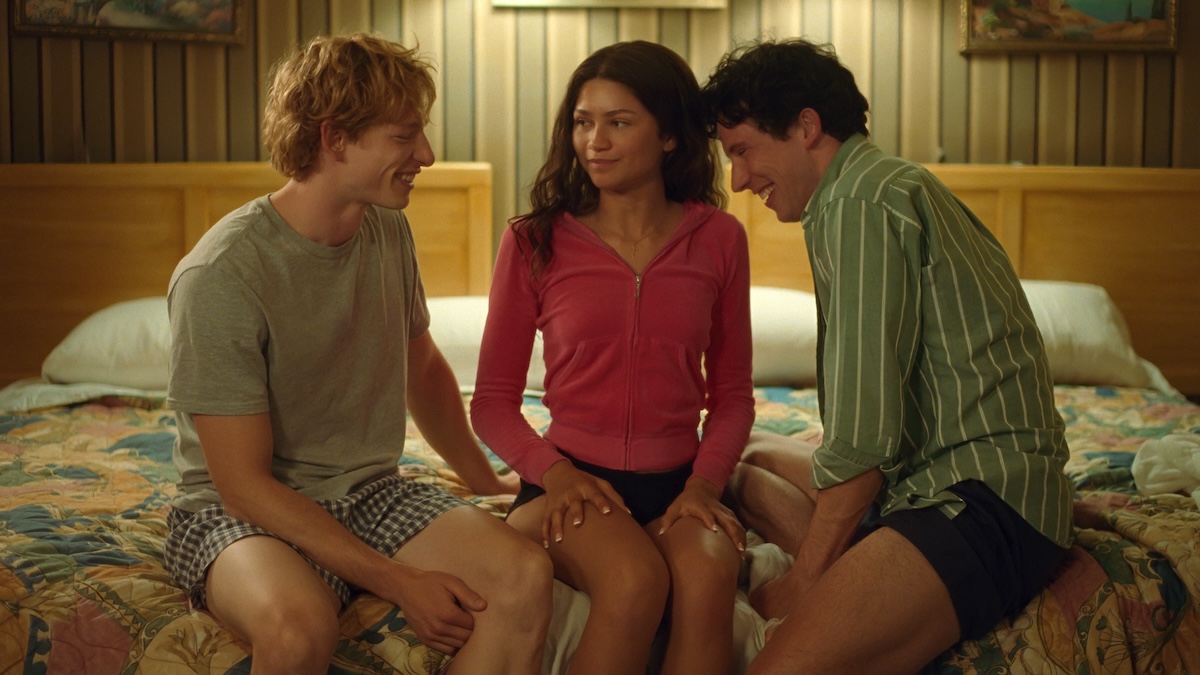
Over two hours, Challengers flicks backwards and forwards between the final match between Patrick and Art and their 13-year intertwined relationship with Tashi. Slowly, the true significance of this match comes to light, as a decade-long rivalry between these former friends elevates it beyond a mere qualifier for a tennis tournament.
The boys were a dynamic tennis-playing duo as teenagers, friends since boarding school and, at times, it’s hinted there might be something more between them. An encounter with a teenage Tashi, who had already landed an Adidas deal and bought her parents a mansion before she even turned 19, threatens their friendship straight away. Tashi claims she doesn’t want to be a homewrecker, but she knows what she is doing when she promises to give her number to the winner of their next game.
We then meet the trio at college. Tashi is dating Patrick, while Art simmers jealously on the sidelines. The shift between past and present tense adds intrigue to the narrative. Patrick was the first to turn professional, so how did he end up sleeping in his car with no money? And how did the shy underdog, Art, end up with a car advertising campaign and Tashi as his coach and wife?
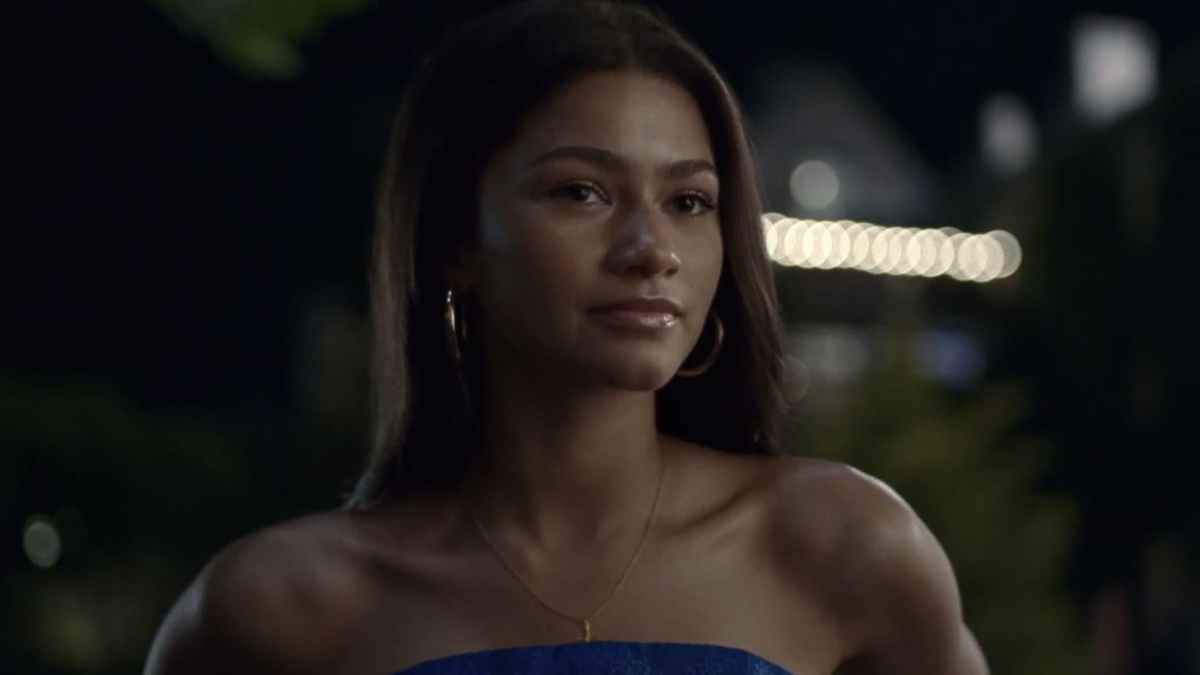
Challengers is perhaps too eager to answer its questions, never allowing audiences to ponder the evolving dynamic of the trio. The script has no time for ambiguity, determined to show the audience exactly who these people are and how they became that way. There are moments where the framing and editing feel a little too literal. For instance, placing Zendaya’s Tashi directly between the pair as they watch their final challenger match. This is why the twisty final act feels like a jolt, suddenly demanding the audience pay close attention to the minute details of the previous two hours.
Challengers is unashamedly sexy, although the sex scenes are the least erotic parts of the film. Those scenes are almost played for laughs, with Tashi using her sexual appeal to control the two men who would happily give everything up for a night with her. Their first shared evening together in a hotel room is a cluster of messy and overconfident teenage hormones. It’s refreshingly honest in its lack of sensuality.
The real eroticism of Challengers lies in the tennis scenes between Art and Patrick. Guadagnino films the pair in all their sweaty, muscular glory. The use of slow motion during the tennis match showcases the real passion in these men’s lives, which isn’t for each other but for hitting a ball with a racket in the hope of winning something.
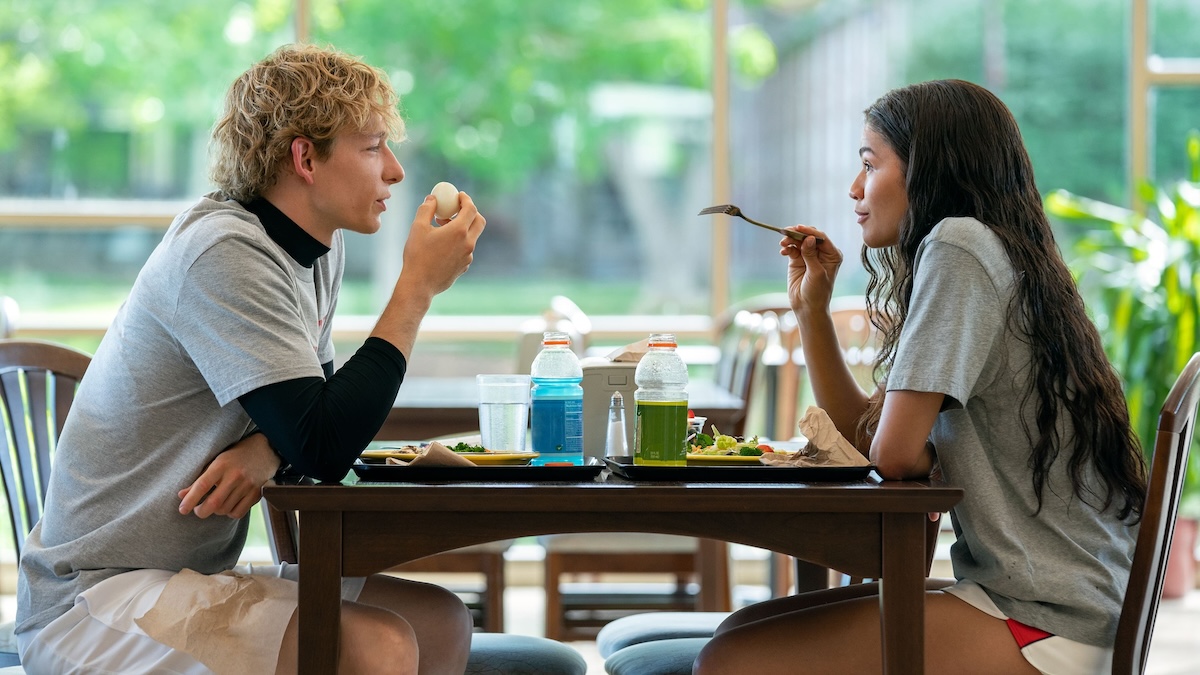
Zendaya (Dune: Part Two) relishes her role as the manipulative Tashi. Unabashedly a villain, Tashi is akin to Lady Macbeth, constantly striving for power and glory, even at the cost of her husband and daughter’s father. The actress delights in this more mature part, delivering scathing put-downs with a twinkle in her eye.
Josh O’Connor (The Crown) is every bit as charming as the confident, eternally youthful Patrick. The charismatic actor bounces perfectly between Patrick’s smug facade and his pathetic truth. Mike Faist delivers a more understated role than Zendaya and O’Connor, but his character undergoes the most development of the three. Over the years, Art’s confidence visibly rises and falls as his personal and professional life ebbs and flows.
Zendaya, Faist, and O’Connor all play against type, benefiting the film’s dynamic. O’Connor weaponises his charm to become a believable sleazeball, while Faist uses his nervous energy to play the kind of man who keeps accidentally becoming a pawn in others’ games. Zendaya is almost regal in her calculating ways. She commands the screen in such a way that the audience believes these men would ruin their lives for a chance with her. Despite their obvious flaws, there’s still something to root for in all three characters, which is a testament to the performances and writing.
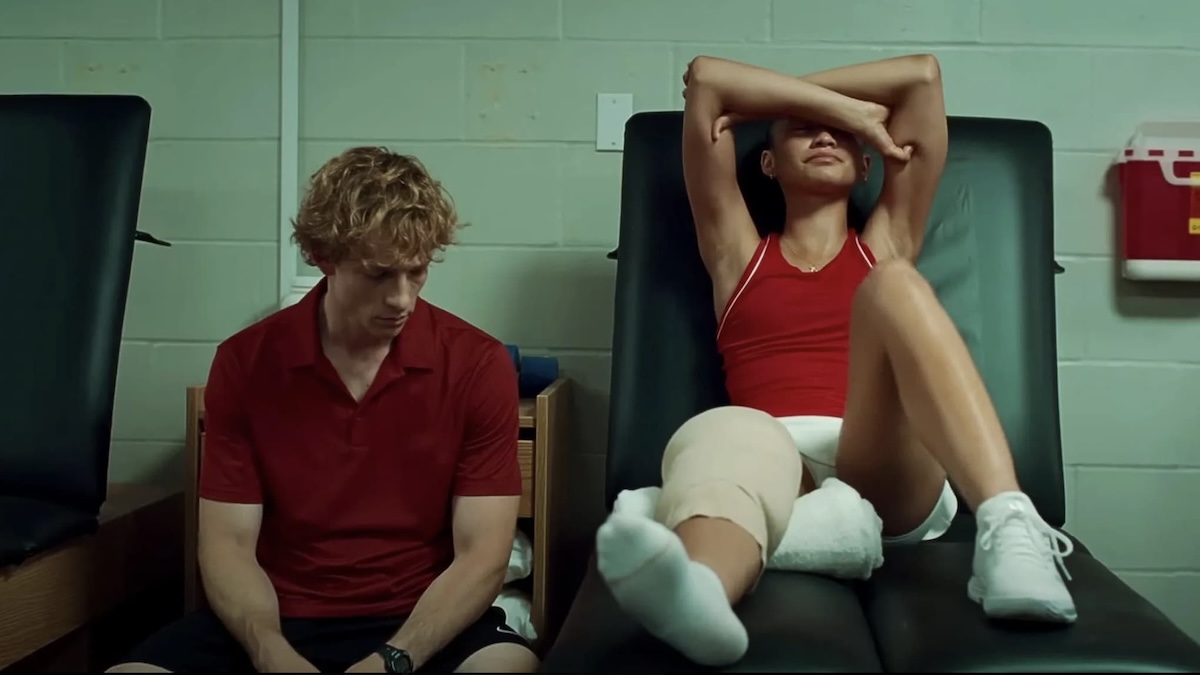
Trent Reznor and Atticus Ross’s high-energy techno score adds adrenalin to even the most mundane scenes. The music will keep audiences on edge, even if they are unaware of the rules of tennis. Off-court, this club-ready soundtrack can be overpowering, adding energy to scenes that don’t require it. The soundtrack is even more jarring when it switches from Ross and Reznor’s techno to choral arias, losing focus away from the showy performances and sharp writing.
Challengers feels like a different film for Guadagnino, whose previous works (Bones and All, Call Me by Your Name) had a dreamlike quality to them. Challengers is sharp and harsh, sometimes filmed more like a documentary than a blockbuster. Cinematographer Sayombhu Mukdeeprom (Suspiria) delivers an America so oversaturated it feels too clinical to be believable. The tennis is initially shot cleanly, like the best sort of television coverage. As the players lose control and confidence begins to waver, the shots become less fluid and more frantic. At one point, the camera adopts the perspective of the ball in play, aiming to leave audiences feeling feverishly dizzy. It’s vertigo-inducing and, at times, difficult to watch.
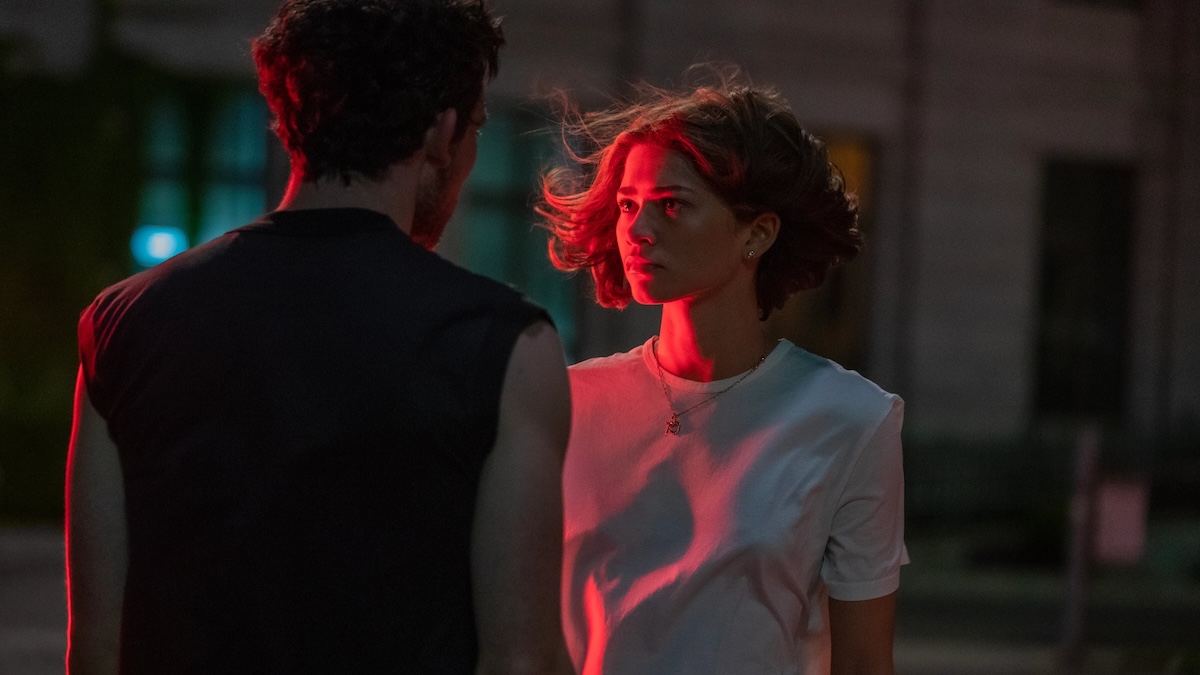
Marco Costa’s (Bones and All) editing becomes feverish at times to the point it does a disservice to the film. Some of the editing choices make Challengers resemble a glorified perfume advert when it’s so much more than that. The energy dips in the middle act once the true stakes of the competition become clear. The film almost edges audiences, that know a bold finale is coming up; it just perhaps takes too long to get there.
Justin Kuritzkes’s screenplay is sharp and cutting, revelling in the cruelty of these three characters. It cleverly frames the lives of Tashi, Art, and Patrick within the context of a career-defining tennis match. Challengers is much more than it seems on the surface. It’s a tightly wound ball of sexual and kinetic energy that slowly unravels until it delivers a nail-biting finale, with just a few pacing and editing quibbles along the way.
USA | 2024 | 131 MINUTES | 1.85:1 | COLOUR | ENGLISH


director: Luca Guadagnino.
writer: Justin Kuritzkes.
starring: Zendaya, Josh O’Connor, Mike Faist, Darnell Appling, AJ Lister, Nada Despotovich, Naheem Garcia, Hailey Gates & Jake Jensen.
